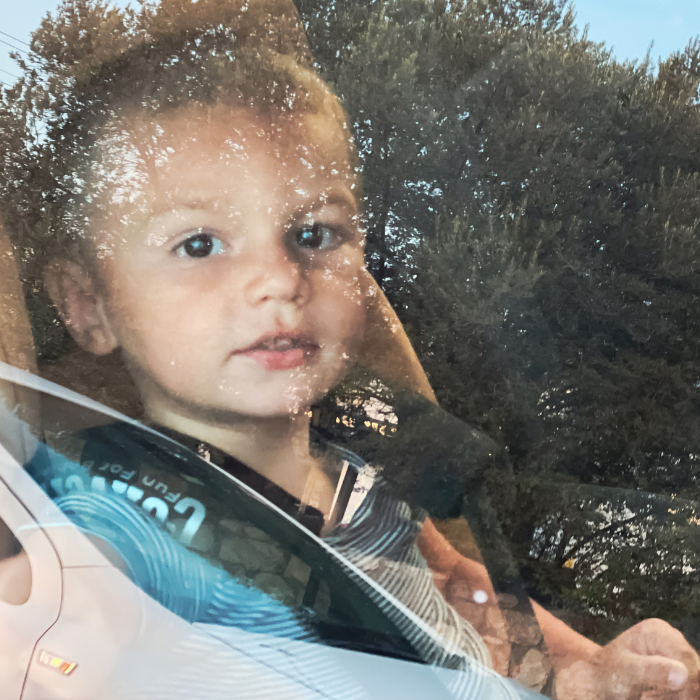
You may reduce, reuse and recycle at home, but have you considered taking an eco-conscious family holiday? Here are some simple ways to make your next holiday a more eco-friendly one.
Family holidays are a kiwi tradition. They are a break away from the stresses of work, school and everyday life; a time to relax and spend time together as a family. Baches and campgrounds all over the country fill up over the summer months. Our neighbour Australia is a popular overseas destination for kiwi families, while the Pacific Islands attract those looking for a complete luxury package.
But what impact does all this tourism have? How do your holiday choices affect the environment? There are simple ways to make your holiday more eco-conscious and less harmful. Whether it’s here or overseas, city-bound or an island resort, making your holiday more green is simply about informed choices and taking your sustainable living practises with you when you leave home.
do your research
The internet has a wealth of information at your fingertips to help you make good choices on accommodation, attractions, and tours. Review sites, such as tripadvisor.com, let you know what others have thought. Search on hotel sites with key words like ‘sustainability’ and ‘eco’.
Some family-focused travel guide websites include:
www.greenjourneys.co.nz (is targeted at the independent traveller but does include a family-friendly search option).
don’t leave town ‘til you’ve seen the country!
New Zealand is marketed overseas as a premium destination for nature- and adventure-based tourism. Ecotourism is now the fastest growing sector of New Zealand’s tourism industry. So why not first look within our own shores for a holiday that you’ll never forget. Our small country offers a wealth of different landscapes and adventures – by simply travelling between Southland and Northland you could imagine you had changed countries. Check out the AA’s 101 Must-Do’s for Kiwis list for some ideas on www.aatravel.co.nz
pay it back
Air travel can be relatively guilt-free, as Air New Zealand has an active carbon offset programme, which allows customers to make a donation to the Air New Zealand Environment Trust.
If you’re driving, consider www.treesfortravellers.co.nz – this site allows you to calculate your CO2 emissions then work out how many native trees to buy, which then get planted into reserves around Kaikoura.
bright lights in the big city
Whether Auckland or Australia is your holiday hangout, here are some simple ways you can have less impact:
- Choose accommodation either close to main attractions or close to public transport so you can easily jump on a bus or tram to wherever you plan to go. Melbourne has a fantastic tram system and you’ll be rubbing shoulders with locals.
- Look around for hotels that incorporate sustainable practises into their everyday business: recycling and waste reduction systems, efficient power and water usage.
- Those little packets of hotel soap and shampoo create unnecessary rubbish – some hotels are now going back to refillable soap dispensers, but you can also bring your own. Choose not to have your towels replaced every day to save on water.
- Packing reusable shopping bags, refillable water bottles and even a travel coffee cup will cut down on plastic bag and bottle waste.
- Try and discourage the kids from picking up tourist brochures but if they do, make sure the hotel will reuse or recycle them. If you need a map of the zoo or theme park, just take one for your group and share (this can be challenging!).
oh, island in the sun!
Fiji, Samoa, Rarotonga, Vanuatu, to name but a few… these islands rely heavily on tourism for their prosperity.
A resort package is a great way to have a holiday (especially for hard-working parents) but it can give you a pretty one-dimensional view of a place. Step outside the resort and walk around, visit local markets and events, buy local produce, eat in local restaurants. Become a ‘local’ for a while.
Again, choose your resort based on sustainable business practises or community involvement.
In Fiji, Matava Eco-Resort uses solar energy, Shangri-La Resort works with local schools to raise education standards and promote marine conservation, while Treasure Island is 50% owned by the traditional landowners.
Hire local guides: not only will you get an authentic experience but you’ll be directly supporting the local economy. Stay on the trails and leave no trace. Observe animals behaving naturally, don’t feed them. If snorkelling, enter the water from sandy areas; don’t stand on rocks or coral reefs. Float over the reef and return to sand if you need to stand.
Buying local crafts will also help the local economy. But first, check the labels or ask questions about where things have come from. Rarotonga, for example, has a registered brand name (Avaiki) to control trade of its famous black pearl and ensure sustainable farming practises. Never buy souvenirs made from protected animals or plants, and that includes shells. Many endangered wildlife are at risk from being sold into extinction.
eco-voluntourism
Of course, if you want to take your green holiday to the next level, there are increasing opportunities both here and overseas to do so.
Eco-tourism has seen a huge growth in volunteer holiday projects where you can sign up for conservation work with endangered animals, habitat restoration, replanting programmes, bird monitoring, pest trapping in national parks, building homes, community and education programmes, plus much more. Check out www.volunteerhq.org – a New Plymouth-based International Volunteer HQ for placements around the world, or www.earthwatch.org.
In NZ, some tour operators associated with national parks, such as fantastic Fiordland, also offer a volunteer component to their tours. The Department of Conservation website www.doc.govt.nz lists approved tourist operators, as well as offering volunteer opportunities on Kawau Island, Tiritiri Matangi and Little Barrier Island, for example.
Australia’s Conservation Volunteers’ Organisation offers holiday packages in some beautiful places such as Tasmania or World Heritage site Fraser Island, find out more at www.conservationvolunteers.com.au.
For a UK-based site that offers an international list of package tours, including family-friendly conservation volunteer trips, check out www.responsibletravel.com.
certification
How can you be sure that the tourism provider you have chosen is truly green? Many tourism organisations have addressed this to varying degrees with branding or accreditation.
New Zealand has the Qualmark Responsible Tourism Operations programme. Businesses can earn and display a Qualmark Enviro-gold, -silver, or -bronze rating. Enviro-gold businesses will be energy efficient, have active waste management and water conservation practises, and will be taking part in conservation initiatives and supporting communities.
Australia’s AAA Tourism has created the Eco-Friendly STAR Accreditation specifically for the accommodation industry.
Eco and nature tourism operators can sign up to the ECO certication brand.
Internationally, the Green Globe is a global certification for sustainable tourism, and covers more than 50 countries around the world.
Sarah Mankelow has worked in conservation for over 15 years, and is the mother of two nature-loving children.
More from travel with kids on Tots to Teens:
10 Tricks That Will Change The Way You Feel About Flying With Kids








